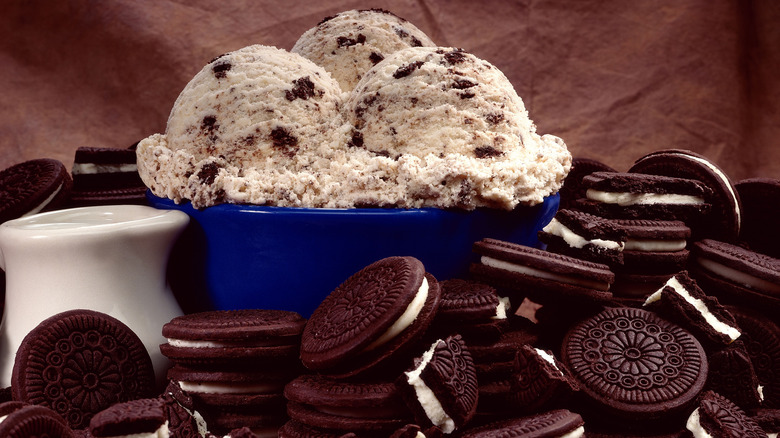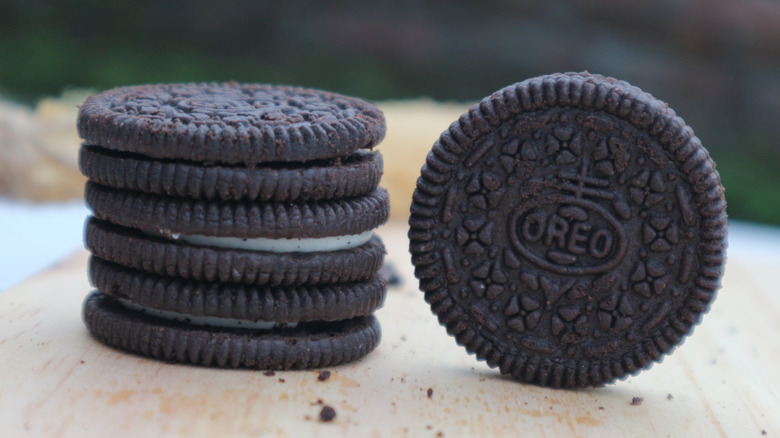How Oreo's Most Famous Competitor Got Its Unappetizing Name
We may receive a commission on purchases made from links.
Before there was the Oreo, there was Hydrox, the original chocolate sandwich cookie. Despite Hydrox being first to market with an eminently dunkable, mysteriously twistable cookie, the Nabisco Oreo brand ended up winning the hearts of snackers. As the two cookies are pretty similar, Oreo may have ultimately earned the upper hand through better marketing. Simply put, would you rather ask for an "Oreo" or a "Hydrox" by name? Hydrox came by its unusual name to position itself as a purer cookie, but that name ultimately helped doom the brand.
The Hydrox cookie was the invention of Jacob Loose, who purchased a treats manufacturer in partnership with his brother and with fellow entrepreneur John Wiles which was eventually known as Sunshine Biscuits. (Tellingly, Loose was also once the president of American Biscuit, one of three brands that merged to form Nabisco in 1898.) Hydrox was introduced as part of the Sunshine family in 1908. The name "Hydrox" was a portmanteau of "hydrogen" and "oxygen", the primary elements of water, and was intended to give the cookie an aura of purity.
Marketing products as "pure" is still a common strategy (think of Dove soap being fragrance-free for sensitive skin) and was relevant at the time as baked goods sometimes contained non-edible ingredients. However, ironically, the association with chemicals in the Hydrox name eventually proved a turnoff for consumers who wanted "cleaner" foods.
Hydrox is still standing (and suing)
Hydrox's fortunes floundered as Oreo gained momentum. Sunshine Biscuits was sold to American Tobacco Company in 1966 and endured a rotation of owners over the following decades, eventually landing at Kellogg's, who chose to retire the Hydrox brand in 2003. Leaf Brands took advantage of a loophole with the Hydrox trademark and purchased the brand name in 2015. Leaf then spent years rehabilitating the cookie's recipe and image, positioning Hydrox as a non-GMO food — ironic, given the cookie's initial purity claims — and getting it officially certified as vegan. (While Oreos are technically vegan, some ingredients make it a more problematic choice.)
Hydrox Cookies are still available for purchase, though they can be tough to find in stores — so tough that Leaf Brands filed a lawsuit against current Oreo parent company Mondelez in 2018. The suit claimed that Oreo's status gave Mondelez the muscle to block Hydrox from better placement on retail shelves. When that suit didn't gain traction, Leaf petitioned the Federal Trade Commission with the same claims in 2021. Given the steady stream of limited edition flavors and variants, such as the recent Oreo Loaded cookie, Oreo certainly has the lion's share of retail space. Perhaps Hydrox will find a way to co-exist on shelves as a cookie innovator and underdog.

